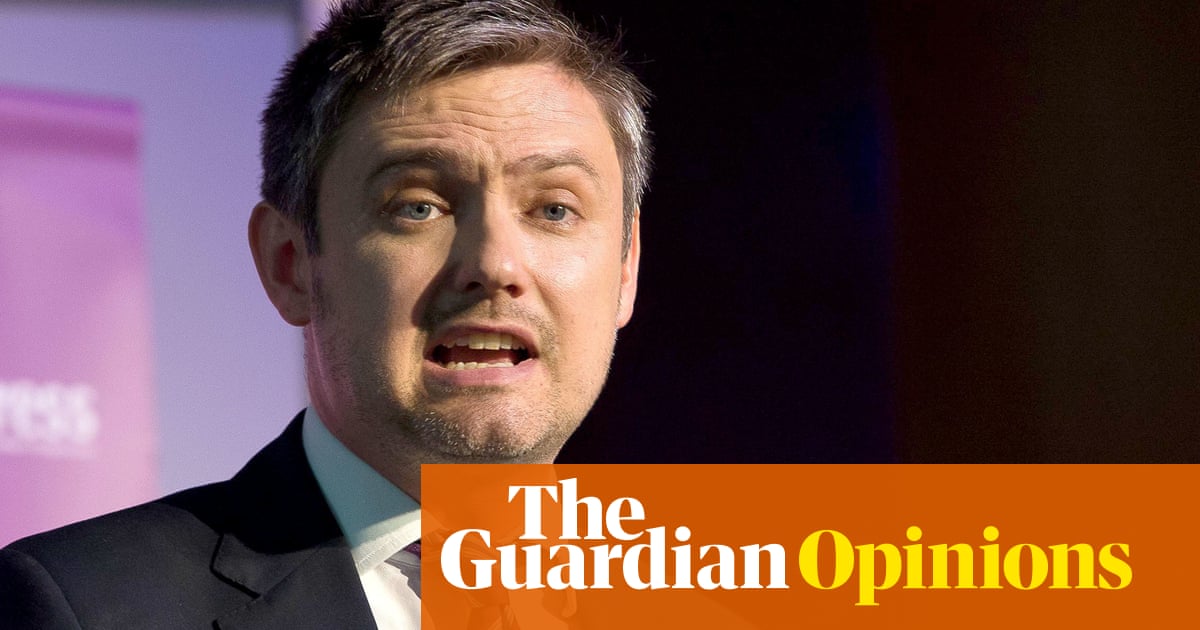
The European Super League (ESL) was touted as the only way for elite football clubs to “recover” from the coronavirus pandemic, and “make people dream” about the beautiful game again.
The €3.25bn (£2.8bn) deal also stood to make JP Morgan Chase, the US investment bank providing the funding, about £2m a week in interest payments for 23 years under the terms of the contract – making it probably one of the most lucrative sports financing deals in history.
But, just three days after being announced the bank’s dream of a money-spinning “closed” ESL was effectively dead. The proposal had achieved the rare feat of uniting football fans and players, as well as Prince William, Boris Johnson, Keir Starmer and the prime ministers of France and Italy in opposition.
On Friday, JP Morgan, which is run by billionaire banker Jamie Dimon, finally admitted its mistake in a very short statement. “We clearly misjudged how this deal would be viewed by the wider football community and how it might affect them in the future,” the bank said.
JPM, which made a record profit of $12bn (£8.6bn) in the first three months of the year (or $130m-a-day), then added just five more words: “We will learn from this.”
The spectacular collapse of the deal in the face of opposition from so many quarters, has prompted fresh questioning of the Wall Street bank’s ethics just weeks after chief executive Dimon told shareholders in his annual letter that he was a good citizen, and part of the community: “We take great pride in being a responsible citizen at the local level – just like the local bakery.”
Dimon, 65, added: “We have long championed the essential role of banking in a community – its potential for bringing people together. For enabling companies and individuals to reach for their dreams.”
The ESL plans have indeed brought people together, but only in anger and with much of it focused on JP Morgan and Dimon.
Lord Jim O’Neill of Gatley, former chief economist at Goldman Sachs and lifelong Manchester United fan, described the ESL plan as “one of the most ridiculous proposals I’ve ever seen in my life” and said it called into question Dimon’s judgment.
“How on earth did such an experienced chief executive that is so good … on connecting with the real world, how on earth did they let themselves get this proposal to where it got?” O’Neill said in an interview with Bloomberg TV.
“It is ridiculous and epitomises so much that has become wrong about modern sport and, in particular, football.”
Dimon, who was paid $31.5m (£22.7m) last year and is estimated by Forbes magazine to be sitting on a personal fortune of $1.8bn, has so far not spoken publicly about the collapsed deal.
But while the bank now says it “misjudged” the scale of public feeling about the deal, it is known that some bankers raised serious misgivings months before the deal was completed. JP Morgan called on its “public responsibility committee” to investigate the merits of the proposal, which was approved despite some on the committee advising against going ahead.
Critics both inside and outside the bank again point to Dimon’s letter, sent to shareholders earlier in April, in which he said: “To a good company, its reputation is everything. That reputation is earned day in and day out with every interaction with customers and communities.
“When I hear examples of people doing something that is wrong because they could be paid more, it makes my blood boil – and I don’t want them working here.”
Aleksander Ceferin, the president of the European governing body Uefa, described the JP Morgan-backed ESL plan as “a closed shop run by a greedy, select few”.
Under the league plans the owners of the 12 founding teams – nicknamed the “dirty dozen” by Uefa’s vice-president Karl-Erik Nilsson – would have received a €200m to €300m “welcome bonus” with funds from JP Morgan.
Many of the clubs – Milan, Arsenal, Atlético Madrid, Chelsea, Barcelona, Internazionale, Juventus, Liverpool, Manchester City, Manchester United, Real Madrid and Tottenham Hotspur – are owned by billionaires.
Sajid Javid, the former Conservative chancellor who was hired by JP Morgan last year as a part-time adviser on a £150,000 annual salary, hit out at them and, by inference, his new employer’s backing for them.
“I’m shocked that in the middle of what’s become an existential crisis for many football clubs, this clique of owners have displayed such appalling selfishness, and a callous disregard for their fans,” he said.
“A super league monopoly strikes at the very spirit of the beautiful game – it shuts out the underdog, offends our British sense of fair play, and reduces football to numbers on a spreadsheet.”
Before the plans were scrapped, Javid called on the government to introduce a “new super tax” on football club profits. “That should splash enough red ink on their spreadsheets to quickly put an end to these destructive, anti-competitive proposals.”
Dimon, who has four times been named by Time magazine as one of the 100 most influential people in the world, has also hired the former shadow business secretary Chuka Umunna to leads the bank’s environmental and social responsibility governance work in Europe. Umunna, who only started work there on 12 April, did not respond to a request for comment.
One of JP Morgan’s biggest clients is Stan Kroenke, the billionaire owner of Arsenal, the NFL’s Los Angeles Rams, and the NBA’s Denver Nuggets. JP Morgan lent Kroenke $2bn to finance the Rams’ stadium project. The bank has also arranged an $800m loan for 16 US basketball teams, and helped raise €575m for Real Madrid to rebuild the Bernabéu stadium.
While Dimon has not yet spoken about the bank’s spectacular own goal with its backing for the ESL, he sent his top lieutenant Daniel Pinto, co-president and chief operating officer, on to business TV channel Bloomberg to defend the bank.
Pinto, who is Argentinian, said the bank had done nothing wrong, it had just provided a loan. “It’s football, it’s very emotional,” he said. “We were expecting this to be emotional, we were expecting people to have different opinions. [But] I don’t think there is reputational damage here.
“We arranged a loan for a client. It’s not our place to decide the optimal way for football to operate in Europe and the UK,” he said in the interview which was recorded on Tuesday 20 April but not broadcast until Friday.
But after the deal collapsed on Wednesday, Pinto said: “It is clear we misjudged the magnitude of feeling that this deal would create, and we will learn from this experience as a company. In the end, football fans were heard loud and clear, and that’s what matters most.”
While Pinto insisted the deal would not hit the bank’s reputation, the independent rating agency Standard Ethics begged to differ and downgraded JPM’s sustainability rating and said the bank’s actions were “contrary to sustainability best practices”. Its corporate rating from reduced from “adequate” to “non-compliant”.
Dimon, the son of Greek immigrants to New York, has worked at JP Morgan since 2000 and rose to become chief executive in 2005. In the wake of the financial crisis, Dimon said government bailouts of big banks was “ethically bankrupt” and regulators should instead let market forces play out. “The term ‘too big to fail’ must be excised from our vocabulary,” he has said.
Dimon, a lifelong Democrat, has become known for speaking his mind on social and political issues, as well as economic policy and has had run-ins with former Bank of England governor Mark Carney, US Senator Elizabeth Warren, and former president Donald Trump.
In 2018, he ignited speculation that he might enter the running for the 2020 presidential election when he told reporters at a glitzy event at the bank’s Park Avenue headquarters that he “could beat Trump”. “I’m as tough as he is, I’m smarter than he is. I would be fine. He could punch me all he wants, it wouldn’t work with me. I’d fight right back.”
Trump retorted: “The problem with banker Jamie Dimon running for president is that he doesn’t have the aptitude or ‘smarts’… is a poor public speaker & nervous mess.
“Otherwise,” the former president said, “he is wonderful.”
When Jamie Dimon speaks …
As the chief executive of the US’s biggest bank, when Jamie Dimon speaks a lot of people listen. And Dimon speaks out often on everything from the politics and the economy to the housing crisis, community values, rising inequality, the minimum wage, gay marriage and trans rights.
Just before the ESL debacle, Dimon wrote: “To a good company, its reputation is everything. That reputation is earned day in and day out with every interaction with customers and communities … When I hear examples of people doing something that is wrong because they could be paid more, it makes my blood boil – and I don’t want them working here.”
In 2016, he said: “America has the best hand ever dealt to any country on this planet, ever. Yes, we have problems, but you travel around the world, you’ll see we have it all.”
In 2017, he said: “[It is] almost an embarrassment to be an American citizen traveling around the world and listening to the stupid shit we have to deal with in this country.”
In a jibe at Trump in 2018: “I’m smarter than he is. And, by the way, this wealthy New Yorker actually earned his money – it wasn’t a gift from Daddy.”
In 2010 he told a congressional panel investigating the 2008 financial crisis: “My daughter asked me when she came home from school, ‘What’s the financial crisis?’ and I said, ‘it’s something that happens every five to seven years’.”
In 2010, after JPM evicted hundreds of thousands of people from their homes after the sub-prime mortgage crisis: “We’re not evicting people who deserve to stay in their house … We don’t think there are cases where people have been evicted out of homes where they shouldn’t have been.”
Dimon’s management advice: “Don’t do anything stupid. And don’t waste money. Let everybody else waste money and do stupid things; then we’ll buy them.”
Dimon on bitcoin in 2017: “It’s worse than tulip bulbs. It won’t end well. Someone is going to get killed. It’s just not a real thing, eventually it will be closed … My daughter bought bitcoin, it went up and now she thinks she’s a genius.”
Dimon on gay marriage in 2017: “This is good for our company and clients, but more importantly, it’s the right thing to do. The rights of all people are important and must be protected.”
Dimon on the yawning US inequality gap in 2019: “A big chunk of [people] have been left behind. Forty percent of Americans make less than $15 an hour. Forty percent of Americans can’t afford a $400 bill, whether it’s medical or fixing their car. Fifteen percent of Americans make minimum wages, 70,000 die from opioids [annually].”












